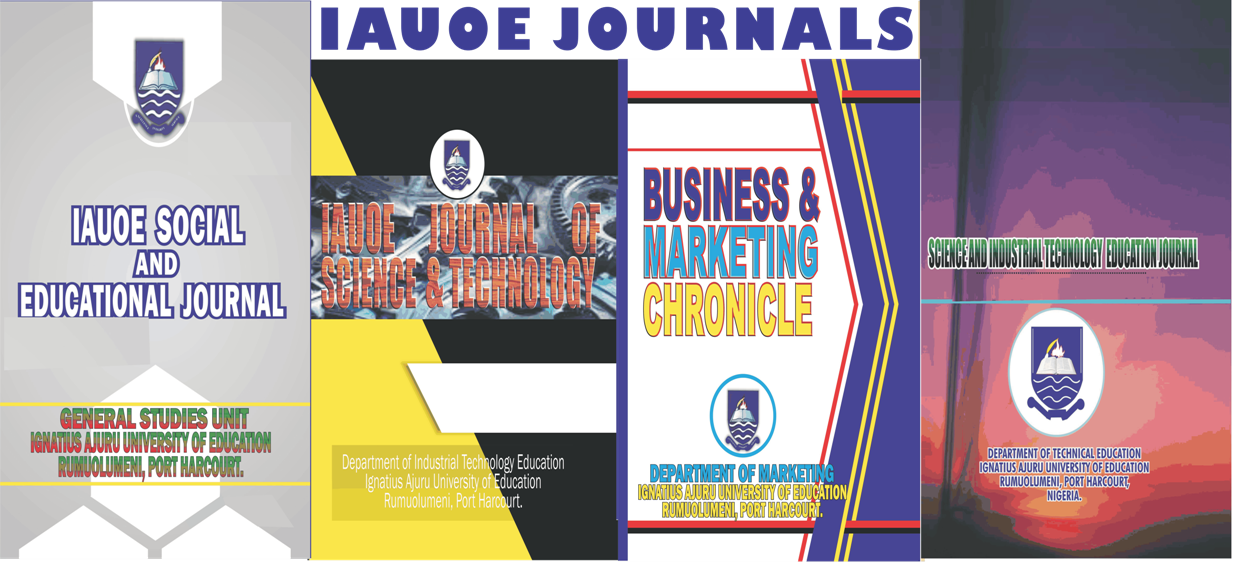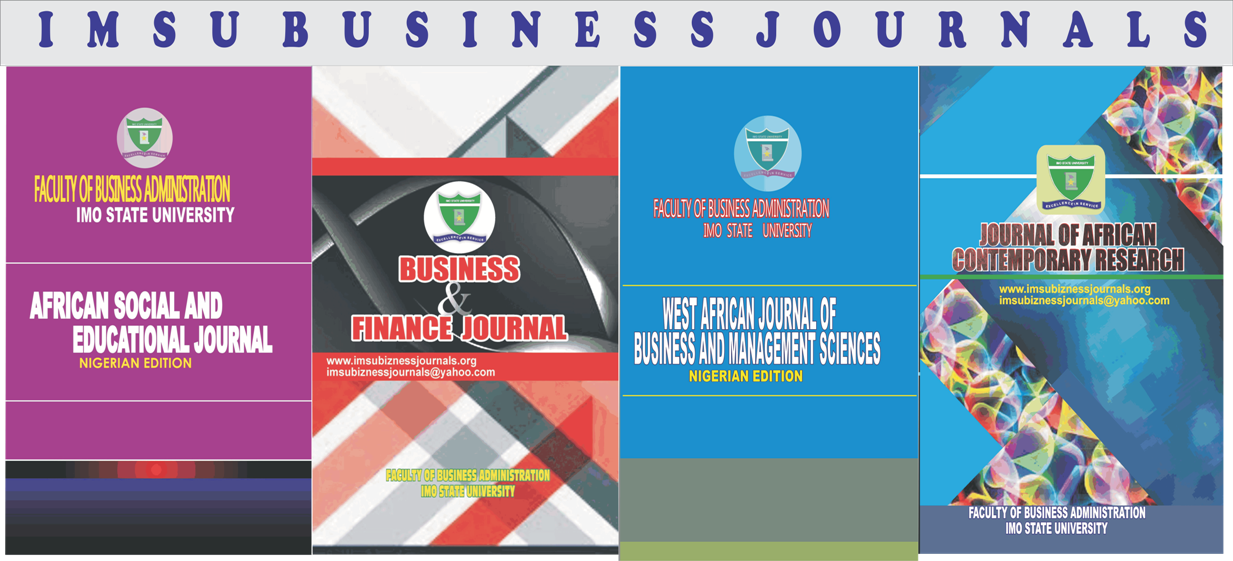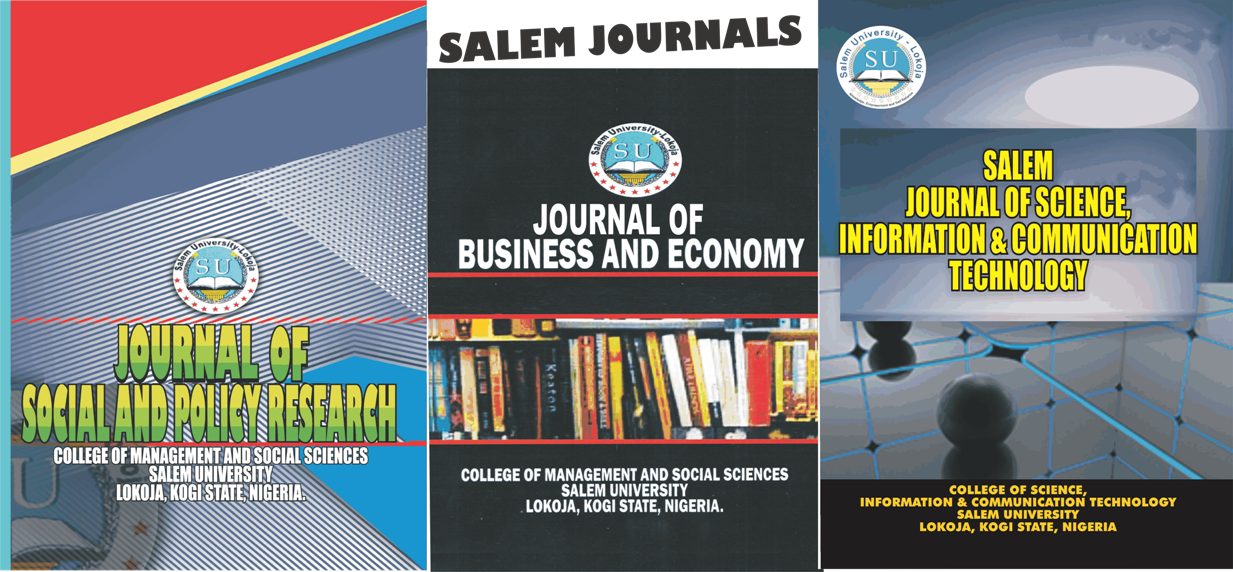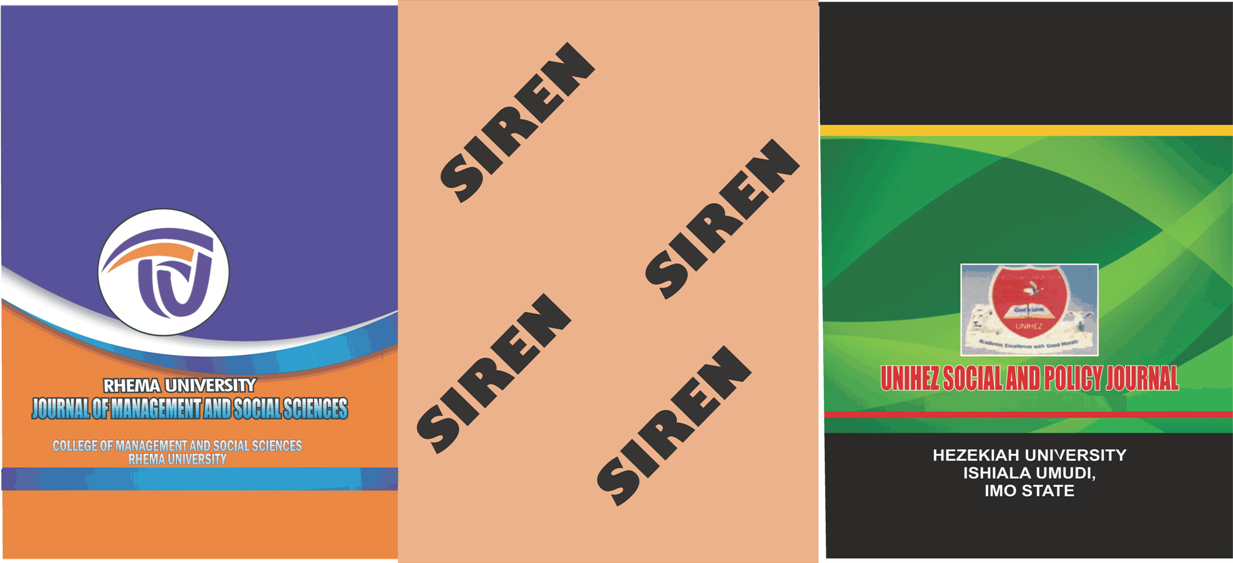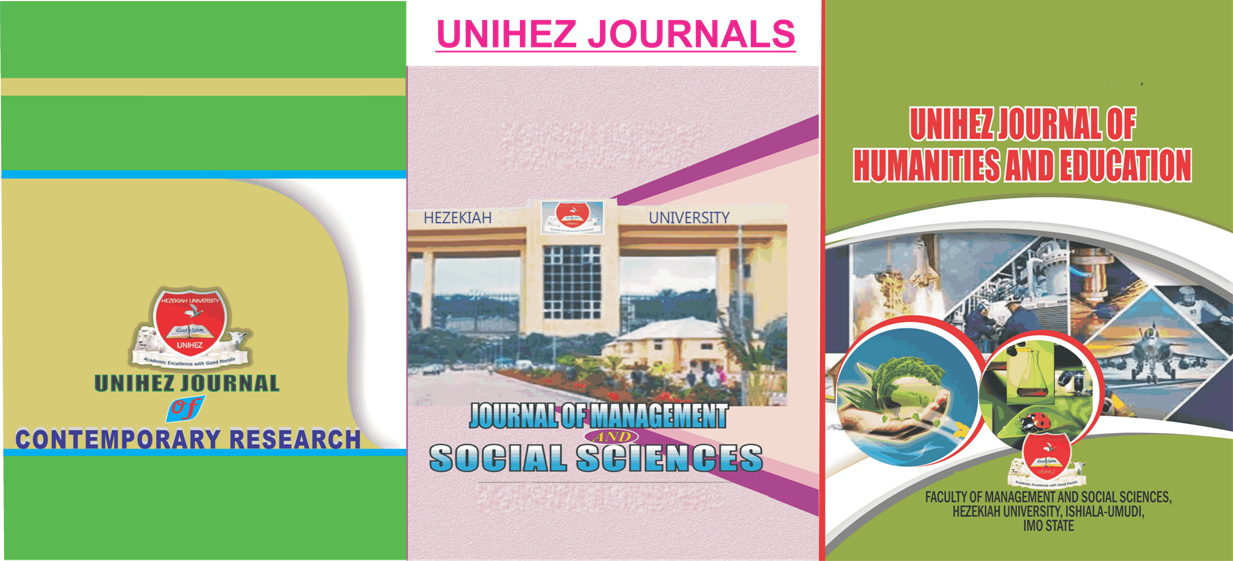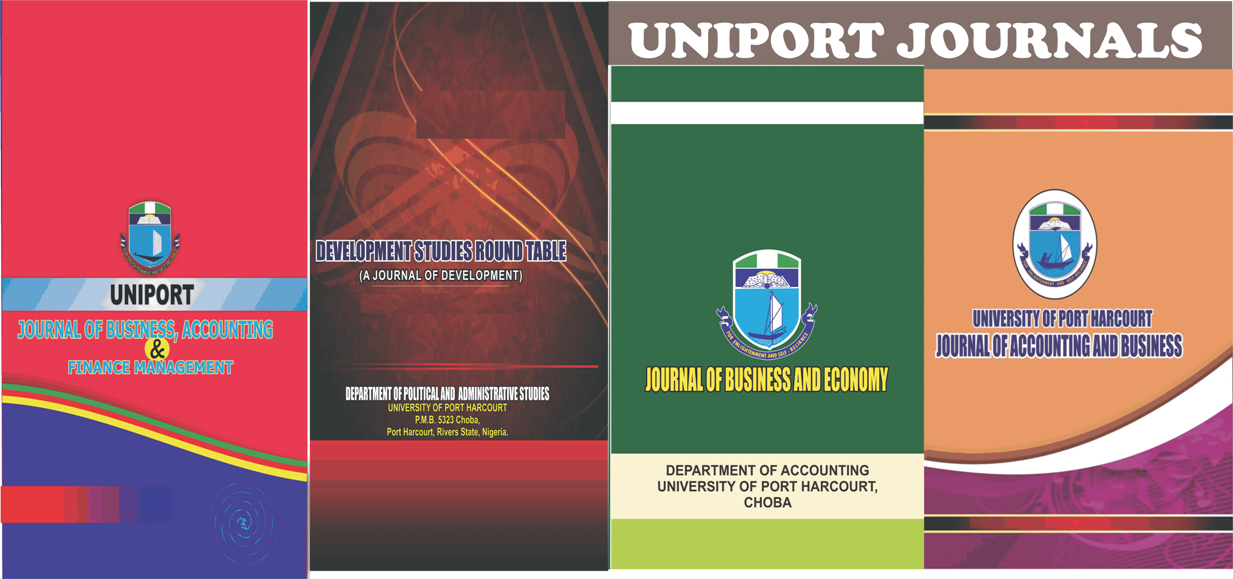2021 Archive
| 1 |
Title: TEACHING FOR ACTIVE LEARNING IN SELECTED HIGHER LEARNING INSTITUTIONS IN TANZANIA PERCEPTION, UNDERSTANDING, STRATEGIES, CHALLENGES AND PROSPECTS.pdf Author: MARY JIBREA PhD. Abstract: Abstract This study explores the practice of teaching in higher learning institutions in Tanzania from the perceptions and understanding of lecturers and students of four selected universities. The interest in the topic has been prompted by the growing need to promote teaching for active learning so as to provide lecturers and students with relevant knowledge and skills to prepare them to become more adept critical thinkers, problem solvers, creative thinkers and decision makers in an increasingly complex, dynamic and uncertain future. Applying constructivist theoretical framework, the researcher sought to respond to the major question: “Do lecturers and students in higher learning institutions in Tanzania practice teaching for active learning respectively?” The specific objectives were meant to explore the understanding of lecturers and students about active teaching and active learning; to determine the extent to which lecturers and students employ teaching for active learning strategies in classes; to assess challenges that lecturers and students face as they implement teaching for active learning and the prospects for adopting teaching for active learning. The researcher adopted a cross-sectional design using mixed methods approach for triangulation purposes. The study population comprised of 221 finalist students of whom 102 (51.4 %) were males and 101 (48.6%) were females. It also included 40 lecturers of whom 26 (60%) were males and 14 (40%) were females. Data were collected through class observations, structured interviews, focus group discussions and questionnaires. The results showed that conceptions about teaching for active learning were based on lecturers’ and students’ personal philosophy and their fields of study. Few lecturers and students employed teaching for active learning strategies in classes. The challenges that lecturers and students face as they implemented active teaching included - inter alia, individual lecturers’ pre-conceptions about teaching and learning; lack of expertise in using strategies for active teaching, lecturers - students’ power relationships, and the nature of the curriculum; language barrier, and class sizes. However, there is a high prospect for the lecturers and students adopting teaching for active learning. Such adoption is likely when lecturers and students get exposed to strategies for active teaching and active learning respectively; when the number of students in classes is manageable and when teaching and learning resources are available and in good condition; and when students change their mind sets and adapt active teaching and learning conditions. The researcher has recommended professional development focusing on active teaching that support and qualify university lecturers. Other recommendations included improving the teaching and learning situations; providing lecturers with induction programs; improving students-lecturers’ relationships; ensuring enough and good teaching and learning resources; ensuring logical lecturer – student ratio and ensure syllabuses match the students’ needs for twenty first century technological and digital world. Keywords: Teaching, Active Learning, Learning Strategies, Language Barriers View |
| 2 |
Title: CORPORATE GOVERNANCE AND AUDIT EXPECTATION GAP IN NIGERIA HOW RELEVANT IS AGENCY THEORY.pdf Author: Owolabi S. A. PhD. & Musa Abubakar Abdullahi Abstract: Abstract The quality and credibility of financial statements build strong public confidence in relying on the ability of accounting information contents of financial statements to enhance usefulness and economic value of investment decisions. Contemporary debate has been raised, suggesting that the ineffectiveness of corporate governance has widened the expectation gap, while others argue that auditors have not exercised enough professional dexterity, due diligence and skepticism in meeting the needs of the financial statement users. In contributing to this debate, this study examines corporate governance and audit expectation gaps from the perspective of agency theory. The study employed a systematic exploratory research, using relevant materials drawn from accounting and financial documentations, journals, periodicals and other related sources. The study gives a contextual understanding of audit expectation gap from the perspective of corporate governance performance oversight function inadequacies, giving room for wider expectation gap. The study reveals that both the boards inability to institute effective corporate governance machinery, the auditor’s negligence and unreasonable expectation of the public have all contributed to the audit expectation gap. The study recommends that auditors should accommodate the concerns of the public in rendering credible and quality audit services, the board should exercise its oversight function of effective supervision of the managers and ensure audit independence is not in any way compromised. Keywords: Audit expectation, Audit Quality, Corporate governance, Financial statement, Credibility, Due diligence, True and fair. View |
| 3 |
Title: APPLICATION OF CHEMISTRY MASTERY TEST AND PERFORMANCE OF SENIOR SECONDARY ONE STUDENT (SSS1) IN FEDEARL GOVERNMENT COLLEGES IN RIVERS AND BAYELSA STATES.pdf Author: Ngozi, B. Ebere & G. W. Orluwene PhD. Abstract: Abstract This study is on Application of Chemistry Mastery Test and Performance of Senior Secondary One students (Sss1) In Federal Government Colleges in Rivers and Bayelsa States. The study adopted the descriptive research design. The population for this study is made up of all 1701 SS1 students from Unity schools in Rivers and Bayelsa State. A sample size of 400 SS1 students was drawn for the study using multi-stage sampling technique. The instrument for data collection is the Chemistry Mastery Test (CMT) which was used for data collection. Each item in the CMT tested student’s ability to define, recognize, explain, analyze or synthesize a problem. Validation of the instrument was done using table of specification, research experts and convergent validation process. A convergent validity index of 0.87 was realized indicating similarities in high correlation between already established instruments. In terms of reliability, Kuder Richardson formula 20 was used to analyze the items. A reliability coefficient of 0.79 was realized indicating that the instrument is highly reliably. The Angoff method was used in analyzing research question one while t-test was used in analyzing research question 5 and 6 with their corresponding hypotheses. Finally, ANOVA was used to analyze research question seven and its corresponding hypotheses. All the hypotheses were tested at 0.05 alpha levels. Result of the study shows that mastery cut-off was 60% and 264 students were categorized as masters whose scores were above 60% mark while 136 were categorized as non-masters who fell below the cut-off mark. Also, there is a significant difference in the mean performance of students by gender (p=0.00 View |
| 4 |
Title: SOCIAL MEDIA REGULATION IN NIGERIA IMPLICATION AND CHALLENGES.pdf Author: DUMEBI OLANNYE-OKONOFUA Abstract: Abstract The argument over social media censorship has risen to the forefront of public debate across social milieus and on a worldwide scale. The cause is being promoted by government entities based on what they call "platform misuse." According to authorities, social media has the potential to further polarize an already polarized country like Nigeria if it is not addressed promptly. Traditional media, on the other hand, is regulated, and many believe that the desire to regulate social media is a ruse to stifle free speech. The Nigerian Press Council and the National Broadcasting Commission control the broadcast and print media in the country, respectively. Overregulation is considered as a threat to free speech in a democratic society. As a result, Nigerians of all political stripes have reacted negatively to the proposal to regulate social media. The implications and challenges of regulating social media in a democratic society like Nigeria are discussed in this study. The main problem is that citizens right to free expression is being violated. The study used content analysis to find secondary data sources that were helpful in evaluating the obstacles and consequences of enacting social media regulations in Nigeria. The study finds that regulating social media is difficult because it will almost certainly be seen as an attack on freedom of expression, which democratic regimes around the world strive to protect. Keywords: Social Media, Press Freedom, Nigerian Government, Nigeria View |
| 5 |
Title: EVOLUTION OF CORPORATE GOVERNANCE IN NIGERIA.pdf Author: Owolabi T. J. PhD. & Ogan Tamunokonbia Promise Abstract: Abstract Effective corporate governance has been considered as an essential ingredient for ethical management of corporate entities organization. This study is aimed at reviewing the evolution of corporate governance in Nigeria. The study adopted the exploratory research design based on the review of the extant literature on the subject matter. The study revealed that corporate governance is a product of the historical, political, social and economic development of Nigeria the country. This evolution has provided the right legislation and regulation (code) to ensure good corporate governance practice which will lead to better performance and reduce corporate failures. However, the challenge has been how these firms can promote good corporate governance by themselves. The study recommend that regulatory agencies such FRCN, CBN, SEC, CAC, etc, should established an effective mechanism to monitor and promote implementation of the various legislation and regulations on corporate governance. Also, corporate organizations in Nigeria should ensure compliance voluntary compliance with the various corporate governance legislation and codes so as to benefit from the corporate governance mechanism. Keywords: Corporate Governance, Code of Corporate Governance. Evolution and Nigeria View |
| 6 |
Title: HARMONIZATION OF QUALITY ASSURANCE OF TEACHER EDUCATION A RESPONSE TO DEMAND FOR QUALITY EDUCATION IN AFRICA.pdf Author: SOLOMON WACHARA OMER Abstract: Abstract In this reviewed article, harmonization of Quality assurance of teacher education is investigated. Quality of teacher education in Africa has become a matter of concern in the recent past. Strategies for ensuring quality education in institutions of higher learning cannot be overemphasized. African countries are increasingly demanding for the harmonization of quality assurance in teacher education that will ultimately facilitate the students’ mobility, professional development, information and intellectual resource in order to produce the required human capital for their developing economies. UNESCO and other nongovernmental organizations agencies have put up efforts on quality assurance of higher education which includes teacher education in Africa as a significant determinant of the quality of educational services delivered. This paper was based on desk study and publication on the websites. It has attempted to review the harmonization of quality assurance of teacher education as a prerequisite for quality education as demanded by African societies. The second objective is to determine the teachers’ role in ensuring quality education and finally, it winds up by highlighting the challenges facing the harmonization of quality assurance of teacher education in Africa. The study established that, African countries, like many countries of the world are in the move towards internationalization of their education systems particularly higher education in order to respond to the societal demand for quality education that is competent and competitive nationally and internationally. The mobility of knowledge, skills and qualifications nationally and across the nations has dominated the call for quality education. African countries have thus, attempted to move towards harmonization of the quality assurance of teacher education which is one of the strategies for provision of quality education. However, the challenges that have to be overcome include poverty, inferior technology, forces of globalization, mass enrolment in higher education, student-centered learning, developing economy, political domination in higher education and historical injustices. Keywords: Harmonization, Quality Assurance, Teacher Education, Quality Education View |
| 7 |
Title: AUDIT LIABILITY AND STAKEHOLDERS EXPECTATION GAP IN COVID-19 ERA.pdf Author: Owolabi S. A. PhD. & Odunayo, Jimoh Abstract: Abstract This study examined audit liability and stakeholders’ expectation gap in COVID-19 era. The study considered the possibility of the existence of audit liability as a deterrent to audit failure and spur the auditor to exercise more professional care and skills to avoid unnecessary litigations and excessive audit liabilities. In carrying out this paper, the study employed exploratory research design, using related and revenant materials from the field of accounting and auditing. The study reviewed some journals, periodicals, and other documented financial and auditing bulletins considered useful for the study. In contributing to knowledge, the study provided evidence that auditing service is a contractual commitment and that auditors can be held liable for any economic loss resulting from established professional negligence even during the during the COVID-19 era. The study, therefore, recommended that auditors should exercise more due diligence, professional care, and skills, and skepticism in carrying out audit services as an effort in narrowing stakeholders’ expectation gap. That the stakeholders should show some reasonableness in understanding the duties and responsibilities, as regulated profession by the International Auditing Standards. Keywords: Audit liability, Audit firms, Audit evidence, Due diligence, Professional care and skills, Stakeholder expectation gap. View |
| 8 |
Title: EFFECTS OF DRUG ABUSE ON ACADEMIC PERFORMANCE OF SECONDARY SCHOOL STUDENTS AND ITS REDUCTION MEASURES BY SOCIAL WORKERS IN OBIOAKPOR LOCAL GOVERNMENT....pdf Author: Daniel Uranta, Dsw. PhD. & Eziefula Isaac Kpomasuruchi Abstract: Abstract This study focused on the effects of drug on academic performance of students and its reduction measures by social workers in Obio/Akpor local government area, Rivers State. The main statement of problem is that there are little or no empirical evidence to support the claim on drug abuse in secondary schools mainly in Obio/Akpor local government area. Therefore there is a need to conduct a study on the effect of drug abuse on academic performance of students and its reduction measures by social workers. The major objective of the study is to identify the causes of drug abuse and the major impact of social work profession on this said problem. Thus, data were collected through a self-administered questionnaire (primary source of data collection). A total population of this study is 400 for both secondary school students and secondary school teachers in four different schools. While the sampling size of 200 was determined using the Taro Yamane’s formula from sample size determination. The schools used for this research work are community comprehensive secondary school Rumuokwurisi, Elelenwo Boys secondary school, Brain field International and Holy Child College which was collected through a cluster sampling technique. The findings of the research were that: (1) Drug abuse in students, was not actually caused by their family backgrounds because even people who comes from a good family abuse drugs the most. (2) It was also discovered that drug abuse leads to poor student academic performance. I, therefore recommend that those involved are rehabilitated by the social worker. Again social workers, should monitor these students activities and ensure that they are regulated. Keywords: Drug Abuse, Academic Performance, Reduction Measures and School Students. View |
| 9 |
Title: A CRITICAL ASSESSMENT OF THE TRIGGERS OF OIL-RELATED CONFLICTS IN RIVERS STATE, NIGERIA, 2009 – 2021.pdf Author: Sekibo, R.C & Ogali, M.D. PhD. Abstract: Abstract With 40 percent of Nigeria’s crude oil production in Rivers State, the landscape of the State has been flooded with oil artifacts and pollution from oil exploration at the detriment of the people’s sources of livelihood. Ironically, visible prosperity among the people in particular and development in general, that commensurate with the obvious endowments of the State is absent. It has been argued that the failure of the Nigerian state to enforce its environmental laws and the failure of Transnational Oil Corporations to eliminate oil and gas pollution is linked to three oil and environment related conflicts that have characterised Rivers State/Niger Delta, namely, Resource Curse Conflict; Local Resource Scarcity Conflict; and, Complex Conflict. This article seeks to evaluate the triggers of oil-related conflicts in Rivers State from 2009 – (September) 2021. The Marxian political economy approach was employed to guide data collection and analysis. Secondary data collected from and libraries, national/international agencies and Internet resources were analyzed to describe trends of oil-related conflicts in Rivers State. It was established that there are remote and immediate triggers that have fueled oil-related conflicts in Rivers State. Among others, extreme poverty, the widespread availability of small arms/other weapons and the award of PSCs to ex-militants have precipitated the on-going violence and insecurity in the State. It was observed that the poor partnership with local communities had negative effects on oil conflicts in the State. It is recommended that local communities should be involved in surveillance contracts – to help create jobs. There is also the need to design an orientation and skills acquisition programmes for host and impacted communities in Rivers State. Key Words: Triggers, Oil-Related Conflicts, Rivers State. View |
| 10 |
Title: EXTERNAL INFLUENCE AND POLITICS OF REFUGEE MANAGEMENT IN AFRICA A CASE STUDY OF NIGERIA.pdf Author: Alaneme Justina Chika PhD. & Nwogu Kelechi. B. Abstract: Abstract This seminar work is on the external influences and politics of refugee management in Africa. Let it be said that there is actually no universally accepted definition of the tern nationality, it will be a sort of out of place to establish that we can be discussing the issue of refugee without making mention of nationality. This is because the two terms are inter-twined, and dove-tail into each other. One cannot be referred to as a refugee without the person or citizen coming from a given state. There is a general agreement that nationality constitutes, a legal bond creating reciprocal right and obligations between an individual and a state (Alina Kazorowka 2008:297). This work aims at x-raying the roles played by African leaders and the superpowers, which pre-exposes their states or nations for the exploitation of the space by the white lords. Worthy of mention is the fact that a lot of factors forces people in a given state to migrate and take refuge in other states other than theirs. This researcher will seize this study opportunity to bring to light certain things that needs to be done in order to a bridge the gap created for the whiteman to come in and exploit. View |
| 11 |
Title: PARENTAL SOCIO-ECONOMIC STATUS AND SOCIAL MOBILITY-A REASSESSMENT.pdf Author: Elekwa, Josephine Ebere (Ph.D) & Douglas-Chukwu, Ozioma Abstract: This paper focuses on parental socio-economic status and social mobility in our society. No society is static. This means that the individuals that constitute the society are not absolutely static. Sometimes, movement occurs in either workplace culminating in either demotion or promotion. In a nutshell, social mobility is the movement of individuals from one social position to another. Social mobility could be vertical, horizontal etc., while parental socio-economic status has to do with one’s parent occupation in life or position. The type of work or job a parent does has great influence on a child’s social mobility in our society as parents with high socio-economic status enhance their children social mobility and more when compared to parents with low socio-economic status. The research recommends that parents should strive hard through education in other to influence their children’s social mobility in the society amongst others. Keywords: Social Mobility, Parental Socio-Economic Status. View |
| 12 |
Title: INTEGRATED REPORTING AND PERFORMANCE OF SELECTED COMPANIES IN NIGERIA.pdf Author: EMELOGU LOVINAH C, PhD. Abstract: Abstract This study examined the relationship between integrated reporting and performance of selected companies in Nigeria. Primary data were collected through the administration of well-structured questionnaire to two hundred and two (202) respondents comprising some staff of Coca-Cola Bottling Company, Mobile Telephone Network (MTN) Group and Unilever Plc. A fraction of this sample size (twenty five staff) was interviewed in order to corroborate responses from the questionnaire. The reliability test of the questionnaire was done using Strictly Parallel Model: hence, the results show that the research instrument was appropriate for the research topic and therefore reliable. The independent variable – integrated reporting was measured by financial capital reporting, manufactured capital reporting, environmental capital reporting, social capital reporting, human capital reporting and intellectual capital reporting while the variable used in measuring company’s performance (dependent variable) is return on assets (ROA) and these variables were captured in the questionnaire. The hypotheses were tested using Regression Model which was run using Statistical Package for Social Sciences (SPSS) Version 16.0. The significance values (sig. values) were used for decision making and the results show that their respective significance values at 95% confidence interval are less than 0.05; hence, all the stated null hypotheses were rejected while the alternative hypotheses were accepted which implies that there is positive and significant relationship between financial capital reporting, manufactured capital reporting, environmental capital reporting, social capital reporting, human capital reporting as well as intellectual capital reporting and companies’ performance. The results were corroborated by regression values of 0.986, 0.953, 0.958, 0.972, 0.955 and 0.986 which showed a good level of prediction and R square values of 0.972, 0.908, 0.916, 0.945, 0.913 and 0.973 respectively, showed that the independent variables statistically, significantly explain the variability of the dependent variable. The study concluded that integrated reporting improves the quality of information available to providers of financial capital by communicating broader and more relevant information that can assist in effective capital allocation decisions and recommended among other things that there should be a legal requirement for the adoption of integrated reporting in Nigeria. Keywords: Integrated reporting, integrated report, corporate capitals, value creation. View |
| 13 |
Title: COUNSELING FOR EFFECTIVE CITIZENSHIP AND NATIONAL RE-BIRTH IN POST COVID-19 ERA WITH SUBTHEME IS RE-ORIENTATION AGAINST BRIBERY AND CORRUPTION.pdf Author: Patrick Okechukwu Echebe PhD. & Cosmas Ejezie Ezenwafor PhD. Abstract: Abstract This paper is titled: Re-orientation against Bribery and Corruption; It investigates the general situation of bribery and corruption in Nigeria. It identifies the unlawful acts of giving and receiving of gratification in government functionaries, political associations, academic institutions, contracting and merchandise business as bribery and it encourages corruption in our body polity. It also observes that bribery and corruption has become endemic such that, the citizenry are currently suffering its malaise, especially during the post COVID-19 era. For example; there is increase in drug abuse, kidnapping, violence, hunger, poverty, unemployment and insecurity. The paper highlights available strategies generally in place to tackle the challenges of bribery and corruption and viewed them as inadequate. It employed critical survey method based on interviews and interaction with others. It equally employed analytical method in reviewing approaches and strategies to checkmate bribery and corruption. The findings revealed evidence of orientation against bribery and corruption over the years but no proven successes have been recorded. It also discloses that, retreats, and counseling as a means of orientation against bribery and corruption had severally been conducted by institutions, and government yet the problem of bribery and corruption persisted in the society. It also reveals that, the subjects of bribery and corruption have severally been arrested and convicted, but bribery and corruption remained endemic in our body polity. It recommends a new re-orientation against bribery and corruption with the aid of moral theological and psychological anti-corruption and bribery tools, to inject a new moral order into the society. The paper further argues that, where retreats, counseling, arrests and conviction of subjects of bribery and corruption, have failed as a measure to stamp out bribery and corruption, the only moral approach is introduction of anti-corruption education in primary, secondary and tertiary institutions in order to catch the subjects of future leadership young. The introduction of anti-corruption education coupled with the existing counseling units shall strengthen and inject moral and effective leadership. The paper recommends the course schedules namely; understanding the terms, causes, effects and solutions to bribery and corruption for the attainment of re-orientation against bribery and corruption. Key words: Re-orientation, Bribery, and Corruption View |
| 14 |
Title: PARENTING STYLES AND PEER PRESSURE AS PREDICTORS OF ADOLESCENTS’ DELINQUENT BEHAVIOUR IN RIVERS EAST SENATORIAL DISTRICT.pdf Author: Ukaegbu, H.M PhD. & Edem U.D Abstract: ABSTRACT This study investigated parenting styles and peer pressure as predictors of adolescents’ delinquent behaviour in Rivers East senatorial district, Nigeria. The population of the study consisted of 31,654 public junior secondary school students in the research area. A sample size of 1590 public junior secondary school students was selected for the study using cluster sampling technique. A researcher made instrument titled ‘Parenting Styles, Peer Pressure and Delinquent Behaviour Questionnaire for Adolescents’ (PSPPDBA) was used for data collection. The content validity of the instrument was established by three experts in measurement and evaluation. Cronbach alpha was used to establish the internal consistency of the instrument and reliability coefficients of .71, .73 and .70 were obtained for parenting styles, peer pressure and delinquent behaviour sub-sections of the instrument respectively with the overall reliability coefficient of .71. Simple and multiple regression statistics were used for data analysis at .05 level of significance. The study found that parenting styles and peer pressure taken independently and collectively significantly predict adolescents’ delinquent behaviour. Three recommendations were made among which is that parents should always create suitable environment for effective child rearing as well as make provisions for the needs of their children/wards to reduce cases of adolescents’ delinquent behaviour. Key words: Adolescents, Delinquent Behaviour, Parenting Styles, Peer Group, Rivers East. View |
| 15 |
Title: TIME AND SECURITY MANAGEMENT IN LOCAL GOVERNMENT.pdf Author: ANIETIE E. EKANG, PhD Abstract: Abstract Time and security management constitute two strong pillars that hold the success of any organization, be it public or private. Failure to effectively manage time and security can make or mar any organization. Most organizations owe their success stories to how effective they have been able to manage their time and security issues. These two variables (time and security) can only be ignored at a very great risk to any organization including the Local Government. In fact, Local Governments should take the issue of time and security management very serious because they are the closest level of government to the people and perhaps the most neglected tier of government in the tripod arrangement. View |
| 16 |
Title: MAJOR ISAAC ADAKA BORO AND THE DOMESTIC SPACE-THE FAMILY LIFE AND TEMPERAMENT OF THE REVOLUTIONARY ICON.pdf Author: MFON UMOREN EKPOOTU Abstract: This research focuses on a less-travelled road in the narrative about Isaac Adaka Boro, the first man to agitate for resource control in the Niger Delta through armed struggle. The paper navigates the personal, private, and domestic spaces of the Ijaw man who has been designated the revolutionary icon. Narratives about Isaac Boro are inundated with tales of his struggle to break the yoke of poverty and marginalization for the people of the Niger Delta. As such, there has been an inadvertent silence about his personal life, the very reason for which this paper is written; to fill this gap. Using a descriptive and narrative approach in exploring Isaac Daka Boro’s personal space This approach of storytelling enables one to construct the experiences of Boro as a family man into an intelligible whole, as an important constituent of his entire identity. The paper contributes to narratives of revolutionary leaders in the Niger Delta, on the Ijaw discourse and the armed struggle in the Niger Delta. Keywords: Isaac Boro, Ijaw, Marginalisation, Activism, Family. View |
| 17 |
Title: EVALUATION OF THE PHYSICOCHEMICAL AND ORGANOLEPTIC PROPERTIES OF COOKIES PRODUCED MALTED COWPEA, UNRIPE PLANTAIN AND SWEET POTATO FLOUR.pdf Author: ASOUZU, A. I. Abstract: The present study was conducted on preparation and quality evaluation of malted cowpea, unripe plantain and sweet potato flour cookies. The cookies are produced from cowpea, unripe plantain and sweet potato flour blends formulated in the ratio 90:5:5 (A), 85: 5:10 (B), 80:5:15 (C) and 100% (D) while the 75:5:20 wheat flour (sample E) prepared as control. Functional properties of the composite flour were determined and the quality of cookies produced were evaluated for physicochemical and organoleptic or sensory properties using standard methods. Bulk density, oil absorption capacity and gelatinization temperature of the flour samples decreased significantly (p View |
| 18 |
Title: CLASS SIZE AND BIOLOGY STUDENTS ACADEMIC PERFORMANCE IN OPOBO-NKORO LOCAL GOVERNMENT AREA, RIVERS STATE, NIGERIA.pdf Author: Martha Ijok Adibe Njoku & Ibibuary Edith Iwarimie Jaja Abstract: The studys goal was to find out how Biology students in Opobo/Nkoro Local Government Area, Rivers State, Nigeria, performed academically in relation to class size. For the investigation, a quasi-experimental design was adopted. To direct the investigation, three research questions and three hypotheses were developed. One thousand two hundred and thirty (1,230) senior secondary two (SS2) students made up the studys population, while 110 SS2 students made up the sample. Out of the three public secondary schools in the study region, two secondary schools were chosen using the purposive sample approach, and two intact science classrooms delivering Biology with class sizes of 35 and 75 were also chosen. The Biology Achievement Test (BAT) was the tool utilized to gather data. This device underwent pilot testing and validation. Using the Kuder-Richardson formula (20), the dependability coefficient of 0.68 was achieved. While hypotheses were tested using Analysis of Covariance (ANCOVA) at the 0.05 level of significance, research issues were addressed utilizing the mean and standard deviation. The studys conclusions demonstrated that students studying biology in large and small classes performed significantly differently academically. Additionally, there is a notable distinction in the academic achievement of male and female students studying biology in big and small class groups. Smaller class sizes yielded greater performance than larger class sizes in every group that was tested. Among other things, it was suggested that governments and legislators make sure that new classrooms are constructed and that the number of students in a class never exceeds 35. The government is requesting assistance from the Parent Teacher Association (PTA), philanthropists, and other charity groups in order to improve the performance of secondary school pupils in the subject of biology. Keywords: Class Size, Academic, Biology, Performance, Gender. View |
